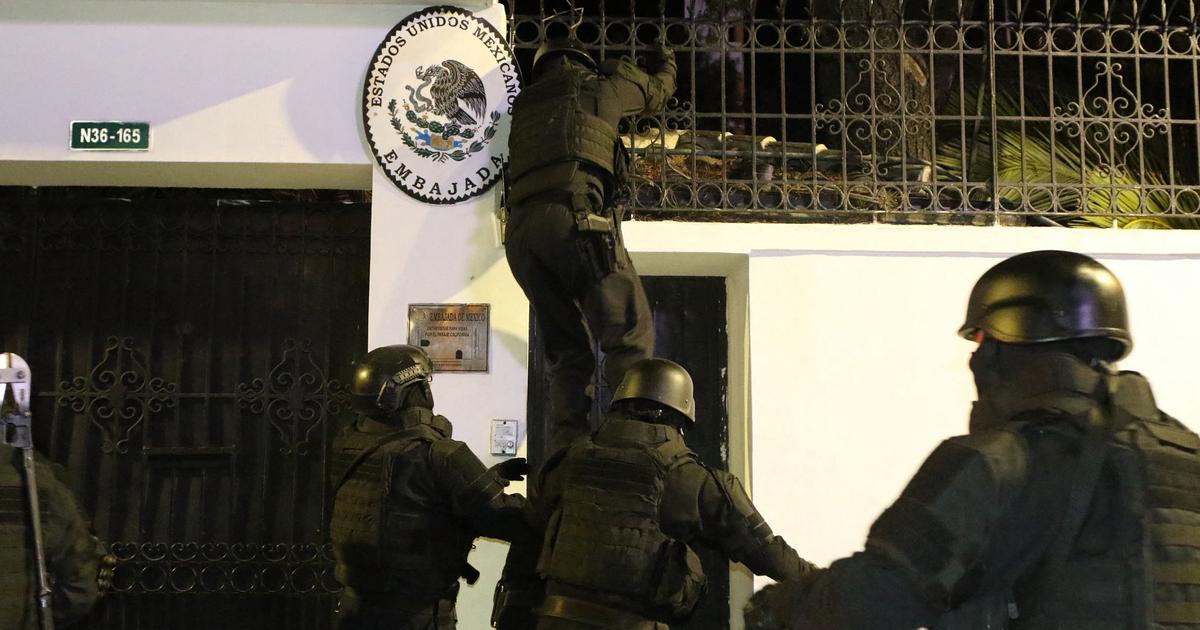Still from 'A police movie'.
Alonso Ruizpalacios (Mexico City, 42 years old) tells in the promotional text that accompanies
A Police Film,
premiered on the last day of the 71st Berlinale, that his new film was born, among other reasons, from the realization that in cinema cannot be told in the past, that everything is present on the screen.
Over the phone, the filmmaker explains: “This reflection, which I have come to after hitting this problem in previous films, has led me to look for a new way of narrating.
I am aware of the limit, and from there I start to see how far I go ”.
The fascination for the far right is rampant in Europe
Black and white nostalgia
For Netflix, the platform that produces the film, and which will release it next fall,
A Police Movie
is a documentary.
For the viewer, this label will probably not be so categorical, because the director of
Güeros
y
Museo
has embarked on an attractive formal experimentation, both in the narrative and in the visual.
Teresa and Montoya, protagonists of the story, are two agents who have followed the family tradition - she, Teresa, in spite of her father - to join one of the most controversial security forces on the American continent.
“I began to listen to police officers in an arduous and very open-minded investigation process, without denying anything, with the idea of telling their social impact.
I did it because with the production companies we thought about filming a documentary about corruption and impunity in my country, ”Ruizpalacios recalls.
"After two years of research and interviews with many people and different points of view, I decided that it was much more interesting to follow a couple of common policemen."
He found two with interesting pasts, with a clear awareness of their position and their power, "and an acceptance of the contradictions that they drag."
The camera follows Teresa and Montoya in those terrible days.
The director mixes images, sounds, makes them count within the actions, for example, their thoughts and their past, before the camera.
"I am aware that in Latin America we have talked about the police rigorously in previous films such as
El bonaerense
or
Tropa de élite,
but I also wanted to delve into the genre, and that is why the first thing I had was the title, which would create expectations for the public" recalls the filmmaker.
Hence his nods to the most classic crime titles, those of the Hollywood of the seventies and the series of that time, as heard in his soundtrack or as he proposes with certain camera positions.
"Of course, in today's Mexico, to create a rampant contradiction and portray the dysfunctional system in which we live."
The Berlinale jury has awarded this investigation with the award for the best artistic contribution, highlighting the work in the assembly of Yibran Asuad.
“The script underwent a long development process,” recalls Ruizpalacios, “from the interviews to the decision of whether to focus on a love story or a disappointment story.
And, of course, the film has been built step by step ”.
Even with the contribution of their actors, because Teresa and Montoya are embodied by two professionals, Mónica del Carmen
(Leap Year, Babel)
and Raúl Briones
(Lost Paradise),
immersed in the hard - and corrupt - police days: Netflix has called documentary to something that transcends formats.

/cloudfront-eu-central-1.images.arcpublishing.com/prisa/ES36AIGYVFFMROATLNUKND7NQE.jpg)




/cloudfront-eu-central-1.images.arcpublishing.com/prisa/42WQ5WO7XRAUJHBGI7E3QJM3DI.jpg)


/cloudfront-eu-central-1.images.arcpublishing.com/prisa/IH72ZOEZVZACPKRCKFSYZMVO7M.jpg)




/cloudfront-eu-central-1.images.arcpublishing.com/prisa/S7ERVSCT4FUVX6R7TUVBDNTH5Y.jpg)
